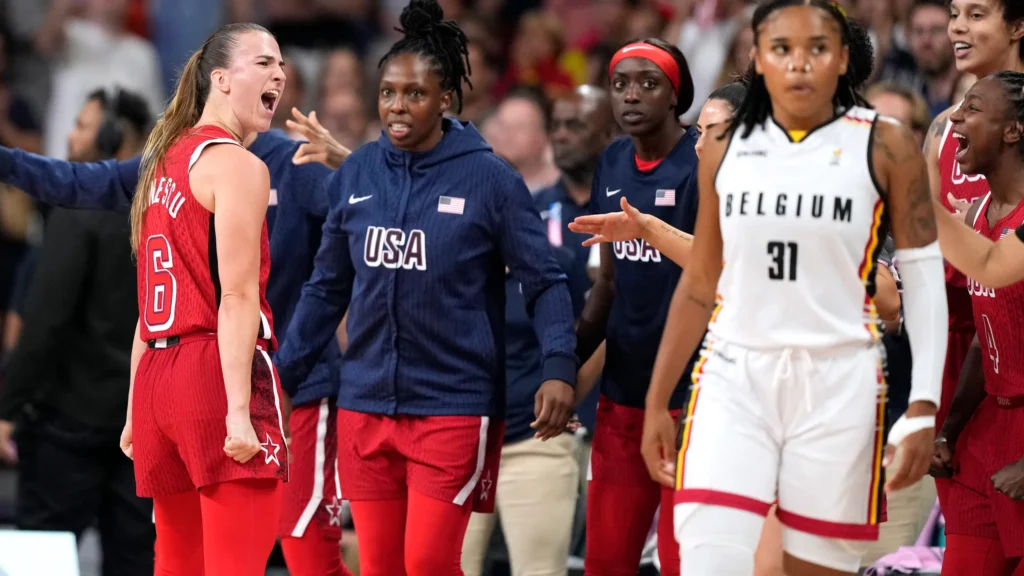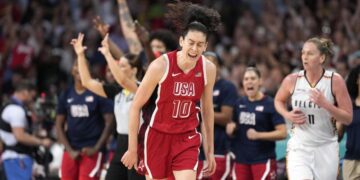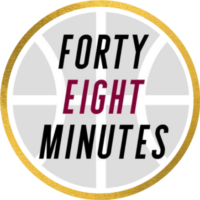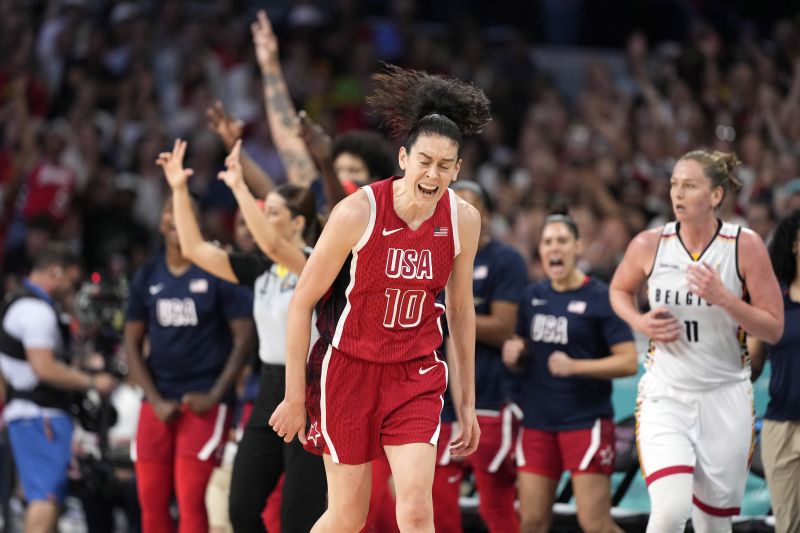BOSTON, MA — The popularity of women’s sports continues to rise and the business around the games has only helped to grow the sports.
Basketball has been at the forefront of women’s sports growth over the past several years.
In terms of viewership, the WNBA has set a plethora of records in the past year and four of the six most-watched women’s college basketball games in history have occurred over the past two seasons. In terms of fantasy sports and sports betting, it also leads the pack.
According to the research conducted by the Fantasy Sports and Gaming Association (via their latest conference), 24 percent of sports bettors have wagered on a women’s basketball game in the past year.
There’s a clear correlation: the fantasy sports and sports betting spaces in the United States have long been seen as ancillary businesses that help to increase viewership.
Before the advent of sports betting legalization in 2018, many projected that an increase in sports betting wagering and fantasy sports engagement would help to grow viewership despite winning attention spans in long-form entertainment.
Jeff Ma, whose rise from MIT student to professional gambler was the inspiration behind the film ’21’ (2008), was one of many who made the case (as I relayed for CNBC).
Legalized betting will garner even more interest in the professional sports leagues and viewership could rise with a favorable ruling…
“You’re seeing a paradigm shift in the fact that millennials do not like to sit down and watch long-form stuff. It’s short-form. It’s Snapchat. It’s clips on YouTube,” Famed Gambler Jeff Ma explained to CNBC and others at the MIT Sloan Analytics Confernence in 2018. “Hopefully the level of engagement that gambling could give could combat that, so that you wouldn’t see rating go down,” Ma said, adding, “Some people do not like to sit and watch a three and a half hours thing anymore unless there’s something vested in it.”
Six years later, the growth of women’s basketball is an inspiring case study.
What About The Olympics?

Viewership for the 2024 Summer Olympics in Paris is up across the board compared to the 2021 games, as Lillian Rizzo of CNBC recently reported.
As for fantasy sports and sports betting around the games, it’s an area that isn’t quite as developed.
Daily Fantasy companies—such as PrizePicks—have incorporated USA Basketball and other Olympic games into their platforms. Many sports betting operators are offering odds on a variety of contests, including basketball, rowing, tennis, and golf among many others.
Data on betting handles and fantasy sports participation haven’t fully trickled out yet, though Doug Greenberg of ESPN provided some insight as the Games in Paris kicked off. DraftKings reported that their most-bet team for the Olympics was the USA Basketball’s Mens 5-on-5 (as opposed to the 3-on-3 team, which you can find an inside look at from our 2021 Olympics Coverage); while the women’s USA Basketball 5-on-5 National Team was reported as DraftKings’ third most-bet team of the 2024 Paris Olympics
It’s worth noting that betting operators and fantasy sports companies don’t expect to see a major surge in the amount of money bet on the 2024 Olympics.
How Are Other Women’s Sports Performing?

Basketball isn’t the only sport to see success in the sports betting and fantasy sports space, according to research presented by the Fantasy Sports and Gaming Association at their latest semi-annual conference (the next of which will be held in Las Vegas in early 2025).
Among those who have wagered on sports in the past year:
- 11% of the bettors have placed a wager on Women’s MMA and 11% have placed a bet on Tennis.
- Soccor and Volleyball round out the Top-5 in terms of which women’s sports more bettors have placed a wager on in the past year.
| Women’s Sport | % of Bettors Placing Bets* |
| Basketball | 24% |
| Mixed Martial Arts (MMA) | 11% |
| Tennis | 11% |
| Soccor | 9% |
| Volleyball | 9% |
| Softball/Baseball | 7% |
| Golf | 7% |
| Boxing | 6% |
| eSports | 5% |
| Rugby | 2% |
| *within the last year | |
Impact of Women’s Sports Growth on Men’s Sports Betting & Fantasy Sports
It’s worth noting that the growth of the women’s game in the sports betting and fantasy sports space carries little cannibalization risk.
Just three percent of fantasy players only play in leagues centered around women’s sports while 36% of fantasy players are considered crossover players (meaning they participate in fantasy sports of men’s sports and women’s sports), per the FSGA’s research.
For sports betting, those numbers are similar with only three percent of bettors exclusively betting on women’s sports while 39 percent participate in betting on leagues and contests of both men’s and women’s leagues.













